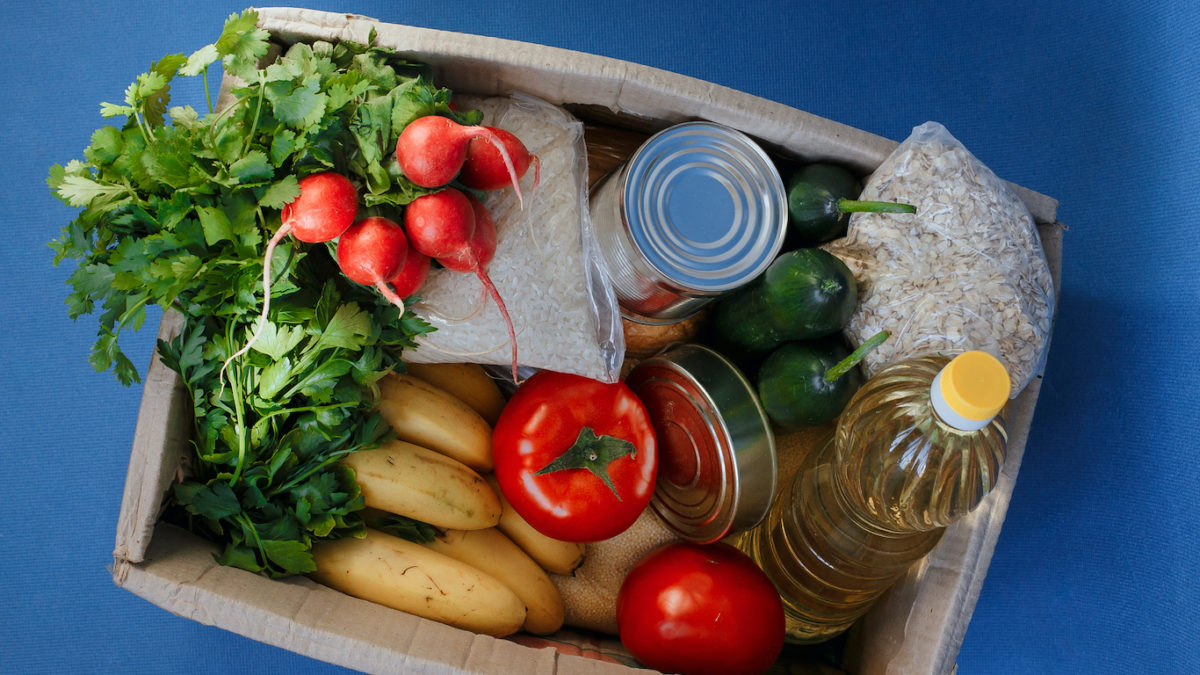Blue Zones Project partners with communities to address food insecurity

If you took a drive through the countryside outside Salinas, Calif., the seat of Monterey County, you’d quickly understand the origin of the region’s nickname – the salad bowl of North America. While the county is home to roughly 430,000 residents, the expansive fields supply 75 percent of the nation’s leafy greens – spinach, lettuce, and other common vegetables.
So it may come as something of a surprise that even in this area, the COVID-19 pandemic has spawned a secondary pandemic – food insecurity.
Even before COVID-19 redefined our lives, 37 million people in the United States suffered from food insecurity, according to the hunger relief organization Feeding America. At one point during the pandemic, 54 million Americans were estimated to be struggling to provide enough food for themselves and their families, whether that was due to a lack of money, shuttered restaurants and food markets suffering from the economic damage of the pandemic, or other factors. In Monterey County, it has been estimated that as many as one-third of residents are food insecure.
Checking in on the most vulnerable
Blue Zones Project Monterey County (BZPMC) is a community-led well-being initiative sponsored by Salinas Valley Memorial Healthcare System (SVMHS), Taylor Farms, and Montage Health. During the early stages of the pandemic, BZPMC partnered with SVMHS and Alliance on Aging to identify and address cases of food insecurity among 400 senior residents of CHISPA, a local affordable housing development. Residents were asked a series of questions related to isolation and access to food and medication. Those in need were connected to local resources and given the opportunity to receive a regular check-up call free of charge from the SVMHS Telecare program.
Following this success, BZPMC supported efforts in another affordable housing development to ensure children had access to food, coordinating meal deliveries to students who lived outside walking distance from the local school.
In addition to efforts coordinated by BZPMC, Monterey County residents have been inspired to step up and provide their own creative solutions to uplift their community. When COVID-19 hit, Luz Cedillo and Marco Cedillo, the proprietors of Main Street Bakery & Café, a Blue Zones Project Approved™ restaurant in Monterey County, launched a pay-it-forward program that raised more than $2,500 that facilitated food deliveries to hundreds of people in the community. In the summer of 2020, Luz and Marco joined forces with the state’s Great Plates Delivered program, delivering breakfast, lunch, and dinner to between 30 and 40 seniors every day. In total, Main Street Bakery’s “great plates” have provided nearly 20,000 meals to the community.
Hospitals continuing care beyond discharge
As food insecurity has proliferated, health systems have increasingly begun to reckon with the specter of deprivation that haunts many patients once they are discharged. Even before the pandemic, staff at the Marshfield Medical Center-Beaver Dam in Dodge County, Wisc., had realized that some patients might need extra support with meals after leaving the hospital.
Once the impacts of the pandemic on the region had become clear, the Blue Zones Project Dodge County team convened a group of hospital and community stakeholders, including its partners at Dodge County Food Pantry, to formally institute a food insecurity program. In December, the group began making food deliveries to the households of discharged patients who had screened positive for insecurity and were open to receiving assistance. Now, when a patient is admitted to the hospital, the standard intake questionnaire asks about food access and food preparation abilities at home. As the program continues, it will ensure vulnerable patients have a whole-health resource to continue their progress after leaving the hospital.
Making food insecurity a key policy focus at the local level
It is clear food insecurity is more than a flash in the pan – it was here before COVID-19 and will be here after it subsides. But sustaining long-term improvements to the food landscape in communities will require the active participation of local policymakers who can marshal resources, attention and influence.
In Southwest Florida, the Blue Zones Project team has partnered with the Southwest Florida Regional Planning Council, the Florida Department of Health in Collier County, the Collier County Community Foundation, Florida Gulf Coast University’s Department of Sociology, the University of Florida’s Institute of Food and Agricultural Sciences, and the University of Florida’s College of Agricultural and Life Sciences to establish a Food Policy Council that will address food insecurity in Collier County.
Through this cross-sector collaboration, the council aims to strengthen communication and partnership to ensure a resilient food supply, address local food deserts, improve the dissemination of produce from local farms to local institutions and hunger relief organizations, and build engagement from the community.
Through a $100,000 grant from the Aetna Foundation’s Healthier Cities and Counties challenge, the group will work with partners to set the pace for better healthy food access in the community. The grant will span two years and at its end, the council intends to be established as its own sustainable, governing entity acting as an information and process hub for the local food system.
Addressing the challenges of food insecurity in communities and across the U.S. will require steady attention over time. Quick fixes or Band-Aids won’t be adequate solutions. COVID-19 has offered an opportunity for leaders to see, in plain view, many of the structural barriers to food access. Now, the question is what resources and influence they will put behind programs to address those barriers long-term.
Sharecare’s Community Well-Being Index (CWBI) monitors key elements of community well-being across the U.S., including food access. Learn more about CWBI and about Blue Zones Project.